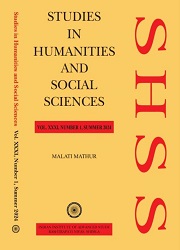Indian Forest, Tribal Life, and Intricate Legal Structure
From Subjecthood to Quest for Citizenship Rights
Keywords:
Forest Rights Act (FRA), National Parks, Tharu Adikvasi Mahila, Majdoor Kisan Manch (TAMMKA), Akhil Bhartiya Vanvasi Kalyan Ashram (ABVKA)Abstract
Forest in India has been contested space due to many reasons. For state it has been a source of natural resources for the ‘national development’; for conservationist, it has been a space for already extinguishing wild life; and for tribal population, it has been a source of livelihood and an integral part of their cultural ethos. The paper wishes to present an analytical study of the historical factors that turned forests into a contested space. It presents the experience of The Forest Rights Act (FRA), which gives some necessary rights to the STs (Scheduled Tribes) and OTFDs (Other Traditional Forest Dwelling Communities). In this context, the paper focuses on the community rights of forest-dwelling communities in the National Parks (NPs), particularly Dudhwa National Park situated in the Lakhimpur Khiri district of Uttar Pradesh. The paper also compares the role of the two tribal organizations: one Tharu Adivasi Mahila Mazdoor Kisan Manch (TAMMKM) and the second, a pan-Indian tribal organisation Akhil Bhartiya Vanvasi Kalyan Ashram (ABVKA). After all, it is crucial to question how far the ideology and strategy of different organisations impact the political understanding of subaltern groups like tribals? The paper argues that the existence of ‘legal pluralism’ has created a massive obstacle in the proper implementation of the FRA. However, due to their constant struggle for forest rights, the local communities have learned to use the law as a weapon for their rights, which could be termed legalism from below. The paper also asserts that the emergence of ‘legalism form below’ is dependent on the ideology and strategy of organisations working in tribal areas.


